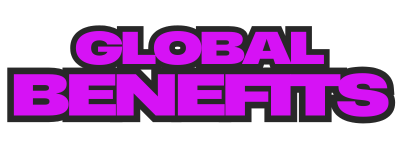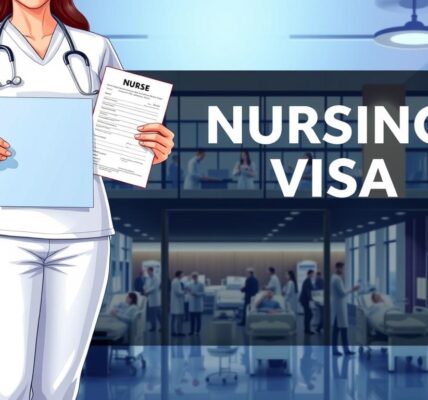Unlocking Nursing Careers in the Netherlands: Professional Registration & Fast-Track Assessment
The demand for skilled healthcare professionals is rising globally, and one European country stands out for its opportunities.
With over 40,000 job openings projected by 2025, the need for qualified nurses is growing rapidly. This makes it an attractive destination for those seeking rewarding careers in healthcare.
To work in this field, professionals must complete the BIG registration process. This mandatory credentialing system ensures that nurses meet the required standards. Additionally, language proficiency in Dutch (B1/B2 level) is essential for effective communication and cultural adaptation.
Competitive salaries, ranging from €36,000 to €60,000 or more, make these jobs highly appealing. Employers often support international candidates through programs designed to streamline the transition. For those ready to take the next step, this country offers a promising path in healthcare.
For more information explore the official visa website mentioned in this article:
You will be redirected to another website
Why Choose Nursing in the Netherlands?
Healthcare professionals are finding new opportunities in a country known for its advanced medical systems. With an 11.4% vacancy rate in the sector, there is an urgent need for skilled workers. This demand creates a favorable environment for those seeking stable and rewarding careers.
Compensation packages are highly competitive. Professionals can expect an average salary ranging from €42,400 to €58,300. Additional perks include an 8% holiday allowance and an 8.33% year-end bonus. Shift allowances and pension contributions further enhance the financial benefits.
Multicultural work environments in cities like Amsterdam and Rotterdam offer a unique experience. These diverse settings foster collaboration and cultural exchange, making the work experience enriching and fulfilling.
Career progression is another key advantage. Professionals can advance from entry-level roles to specialized positions. Employers often support this growth through training and development programs.
Relocation support is also available for international candidates. This includes temporary housing and language courses, ensuring a smooth transition into the new role and environment.
Understanding the Dutch Healthcare System
The Dutch healthcare system is renowned for its efficiency and patient-centered approach. It ensures that everyone has access to high-quality medical services. With a 93% patient satisfaction rate, it’s clear that this system prioritizes both accessibility and excellence.
At its core, the system operates on a three-tier structure. General practitioners (GPs) act as gatekeepers, providing primary care and referrals. Regional hospitals handle specialized treatments, while academic medical centers focus on advanced research and complex cases.
Home care, known as thuiszorg, plays a vital role in recovery and chronic disease management. It allows patients to receive professional care in the comfort of their homes. This approach not only improves outcomes but also reduces hospital stays.
Digital health integration is another standout feature. With 98% adoption of electronic health records (EHRs), providers can share patient data seamlessly. This ensures continuity of care and minimizes errors.
Mental health is treated with the same importance as physical health. Parity laws guarantee equal coverage for psychiatric services, ensuring comprehensive care for all patients.
Quality control is maintained through regular inspections by the IGJ (Dutch Healthcare Authority). Patient outcomes are benchmarked to ensure continuous improvement. This commitment to excellence makes the Dutch healthcare system a model for others to follow.
Nursing Visa Sponsorship Netherlands: Your Gateway to New Career
For healthcare professionals seeking international opportunities, securing the right documentation is the first step. Non-EU applicants typically undergo a 90-day MVV processing period through Dutch embassies. This temporary residence permit is essential for entering the country and starting the process.
Once approved, the GVVA combined permit allows individuals to work and reside in the country for up to three years. This streamlined approach simplifies the process, making it easier for professionals to focus on their careers.
The Highly Skilled Migrant Program is a popular route for employer-sponsored work permits. Here’s a step-by-step breakdown:
- Secure a job offer from a recognized sponsor.
- Ensure BIG registration and NT2 certification are complete.
- Submit authenticated diplomas and other required documents.
Exceptions exist for EU Blue Card holders and intra-company transfers, which offer alternative pathways. Additionally, family reunification options allow spouses and children to join under residence permits.
After arrival, professionals must register with the municipality within five days to obtain a BSN number. This is crucial for accessing healthcare, opening bank accounts, and other essential services.
Step-by-Step Guide to Professional Registration
Navigating the path to professional registration can seem complex, but breaking it into steps makes it manageable. For healthcare professionals, this process ensures they meet the required standards to practice effectively. It involves validating qualifications, meeting language requirements, and completing the BIG registration.
Recognizing Your Qualifications
Before starting the registration process, professionals must validate their qualifications. Non-EU credentials require evaluation through NUFFIC, which takes 4-8 weeks and costs €200. This includes APOSTILLE certification to ensure authenticity. It’s a crucial step to confirm that your education meets the necessary standards.
Language Proficiency Requirements
Language skills are essential for effective communication in healthcare. Professionals must pass the NT2 Exam, with Program I (B1) costing €170 and Program II (B2) €190. Intensive language courses, such as LOI Dutch Courses or TaalBoost programs, can help prepare for these exams. Achieving the required level ensures smooth integration into the workplace.
BIG Registration Process
The BIG registration is the final step to legally practice. Applications are submitted to P.O. Box 3173, 6401 DR Heerlen. If rejected, an appeals process is available through the Ministry of Health tribunal. Once registered, professionals must complete 16 hours of annual continuing education to maintain their license. This ensures they stay updated with industry standards.
Finding Nursing Jobs in the Netherlands
Finding the right job in healthcare involves knowing where to look. With a growing demand for skilled professionals, there are numerous opportunities for those ready to take the next step. Understanding the job market and leveraging the right resources can make the process smoother and more effective.
Job Search Strategies
Specialized online portals like Zorgwerk, ZorgkaartNederland, and ZorgVacatureBank are excellent starting points. These platforms list vacancies across various healthcare institutions, making it easier to find roles that match your skills and preferences.
Networking is another powerful tool. Attending events organized by the KNOV (Royal Dutch Organization of Midwives) can help you connect with industry professionals. These interactions often lead to job referrals or insights into unadvertised positions.
Recruitment agencies like Tempo-Team, Careforce, and USG Professionals specialize in placing healthcare workers. Partnering with these agencies can provide access to exclusive job openings and personalized support throughout the hiring process.
Top Healthcare Institutions Hiring Nurses
Several leading healthcare institutions actively recruit international professionals. UMC Utrecht, for example, employs over 1,200 international nurses annually. Amsterdam UMC offers relocation bonuses of €3,000, making it an attractive option for those moving from abroad.
Erasmus MC and Máxima Medical Center have direct hiring programs that streamline the application process. These institutions are known for their supportive work environments and opportunities for career growth.
For those seeking niche opportunities, international clinics like Amstelland Hospital provide unique settings to work with diverse patient populations.
“The right job search strategy can open doors to rewarding healthcare careers. Leveraging online portals, networking, and recruitment agencies can make all the difference.”
| Institution | Annual International Hires | Key Benefits |
|---|---|---|
| UMC Utrecht | 1,200+ | Comprehensive support programs |
| Amsterdam UMC | 800+ | €3,000 relocation bonus |
| Erasmus MC | 900+ | Direct hiring programs |
| Máxima Medical Center | 700+ | Career development opportunities |
By combining these strategies and targeting the right institutions, healthcare professionals can find fulfilling roles that align with their career goals. Whether through online portals, networking, or recruitment agencies, the opportunities are vast for those willing to explore them.
Work Permits and Visa Applications
Understanding the visa application process is essential for a smooth transition to a new career. For professionals aiming to work abroad, securing the right work permit is a critical step. The IND processing times vary, with 90 days for MVV applications and 2 weeks for GVVA extensions.
Employers typically cover the costs, which range from €311 to €933, depending on the contract duration. Applicants must meet specific salary thresholds, such as €3,381 per month gross for those under 30. These requirements ensure that professionals are compensated fairly for their skills.
Dual intent provisions allow individuals to transition from temporary visas to permanent residence. This flexibility is beneficial for those planning long-term careers in a new country. Additionally, medical clearance from GGD-approved clinics is mandatory to ensure public health safety.
Brexit has introduced exceptions for UK nationals, who can still apply under the withdrawal agreement. Compliance is monitored through UWV workplace audits, ensuring that employers adhere to regulations. This oversight maintains fairness and transparency in the hiring process.
| Requirement | Details |
|---|---|
| Processing Time | 90 days for MVV, 2 weeks for GVVA |
| Employer Costs | €311-€933 |
| Salary Threshold | €3,381/month gross (under 30) |
| Medical Clearance | GGD-approved clinics |
| Brexit Exceptions | UK nationals under withdrawal agreement |
By following these steps and meeting the requirements, professionals can successfully navigate the visa applications process. This opens doors to rewarding opportunities in their chosen field.
Healthcare Insurance and Relocation Support
Relocating abroad requires careful planning, especially when it comes to health insurance and finding a home. These are essential steps to ensure a smooth transition and a comfortable start in a new environment.
Basic health insurance typically costs between €110 and €140 per month, with an annual deductible of €385. Popular insurers like Zilveren Kruis and Menzis offer comprehensive coverage. Here’s a quick comparison:
| Insurer | Coverage Highlights |
|---|---|
| Zilveren Kruis | Extensive network, wellness programs |
| Menzis | Flexible plans, mental health support |
For housing, platforms like Kamernet, Holland2Stay, and HousingAnywhere are excellent resources. They list a variety of options to suit different budgets and preferences.
Municipal registration is mandatory for accessing subsidies like zorgtoeslag. This financial aid helps reduce healthcare costs. Setting up a bank account with ING, ABN AMRO, or Bunq is also essential for managing finances.
Public transport is efficient and affordable. Healthcare workers can benefit from OV-chipkaart discounts, making commuting easier. Cultural orientation services, such as those offered by ACCESS Netherlands, provide valuable insights into local customs and practices.
By addressing these key areas, professionals can focus on their careers and enjoy a seamless relocation experience.
Adapting to Dutch Culture and Work Environment
Adapting to a new culture and work environment can be both exciting and challenging. For professionals moving abroad, understanding the nuances of dutch culture is key to thriving in a new setting. With 82% of international nurses reporting positive integration experiences, the transition can be smooth with the right approach.
One of the most notable aspects of the work environment is the direct communication style. This openness is valued but can be a cultural adjustment challenge for newcomers. Meetings are often agenda-based, and decisions are made through consensus, reflecting the collaborative nature of Dutch workplaces.
The team nursing model is widely practiced, emphasizing shared responsibilities among colleagues. This contrasts with the primary care nurse model, where one nurse oversees a patient’s entire care plan. Understanding these differences helps professionals integrate more effectively.
Cycling is a significant part of dutch culture, and many professionals use bikes for commuting. Organizations like ANWB offer bike safety courses to help newcomers adapt to this lifestyle. Additionally, expat communities, such as those at The Hague International Center, provide support and networking opportunities.
“Embracing the local culture and workplace practices is essential for a fulfilling professional experience.”
For those facing challenges, complaint procedures are available through unions like CNV Zorg & Welzijn. These resources ensure that professionals can address concerns and maintain a positive work environment.
| Aspect | Key Insight |
|---|---|
| Communication Style | Direct and open, valued in the workplace |
| Workplace Etiquette | Agenda-based meetings, consensus decision-making |
| Cycling Culture | ANWB bike safety courses for newcomers |
| Expat Communities | The Hague International Center for support |
| Complaint Procedures | CNV Zorg & Welzijn union for assistance |
By embracing these cultural and workplace practices, professionals can create a rewarding and seamless integration experience.
Continuous Education and Career Development
Continuous learning is a cornerstone of professional growth in healthcare. Staying updated with the latest skills ensures professionals remain competitive and effective in their roles. The BIG registration mandates 16 hours of annual continuing education, emphasizing the importance of ongoing training.
For those seeking advanced qualifications, HAN University offers part-time BSN conversion programs. These programs are designed to help professionals enhance their credentials while balancing work commitments. Specialization pathways, such as ICU (NIV), oncology (V&VN), and pediatrics (NSPOH), provide focused training for career advancement.
Hands-on experience is equally vital. SkillsLab Rotterdam offers simulation training, allowing professionals to practice in realistic scenarios. This practical approach ensures they are well-prepared for real-world challenges.
Conferences like the Dutch Nursing Symposium provide opportunities to network and learn from industry leaders. These events are invaluable for staying informed about the latest trends and innovations in healthcare.
Leadership programs through TIAS School for Business and research roles at the Netherlands Institute for Health Services Research further support career development. These initiatives empower professionals to take on leadership roles and contribute to groundbreaking research.
“Investing in continuous education is the key to unlocking long-term career success in healthcare.”
By embracing these opportunities, professionals can ensure their skills remain relevant and their careers continue to grow. Whether through formal education, hands-on training, or leadership programs, the path to success is paved with a commitment to learning.
Conclusion
Embarking on a healthcare career abroad requires careful planning and preparation. From completing the professional registration process to integrating into a new community, each step is crucial for success. Utilizing services like TerraTern or Edumentum can simplify the journey, ensuring a smooth transition.
With a projected 15% wage growth in the sector by 2027, now is the perfect time to take the next step. Start by registering for the NT2 exam and gathering all necessary documents. Resources like the IND contact center, CIBG portal, and Nuffic Neso Nigeria are invaluable for guidance.
This path offers rewarding healthcare opportunities for those ready to embrace the challenge. Take the first step today and unlock your potential in a thriving international career.
FAQ
What is the BIG registration, and why is it important for nurses in the Netherlands?
The BIG registration is a mandatory process for healthcare professionals to legally practice in the country. It ensures that nurses meet the required standards of education and competence, providing credibility and trust in the Dutch healthcare system.
Do I need to learn Dutch to work as a nurse in the Netherlands?
Yes, proficiency in the Dutch language is essential. It is required for both professional communication and the BIG registration process. Many institutions offer language courses to help healthcare workers meet this requirement.
How can I find job opportunities in Dutch healthcare institutions?
Job search strategies include using specialized websites, networking with healthcare agencies, and directly applying to top institutions. Many hospitals and clinics actively recruit international professionals with the right qualifications.
What are the benefits of working in the Dutch healthcare system?
Benefits include competitive salaries, opportunities for career development, access to continuous education, and a supportive work environment. The system also emphasizes work-life balance and professional growth.
What documents are needed for the visa application process?
Required documents typically include a valid passport, proof of qualifications, BIG registration confirmation, and a job offer from a Dutch employer. Additional paperwork may vary depending on individual circumstances.
Is health insurance mandatory for nurses working in the Netherlands?
Yes, health insurance is compulsory for all residents, including healthcare professionals. It ensures access to medical services and is a key part of the relocation process.
How can I adapt to the Dutch work culture as an international nurse?
Adapting involves understanding local customs, improving language skills, and embracing teamwork and open communication. Many institutions offer cultural training to help new employees integrate smoothly.
Are there opportunities for continuous education in the Dutch healthcare system?
Yes, the system encourages ongoing learning through courses, workshops, and certifications. This focus on development helps professionals stay updated with the latest practices and advance their careers.
Published on: 29 de May de 2025





